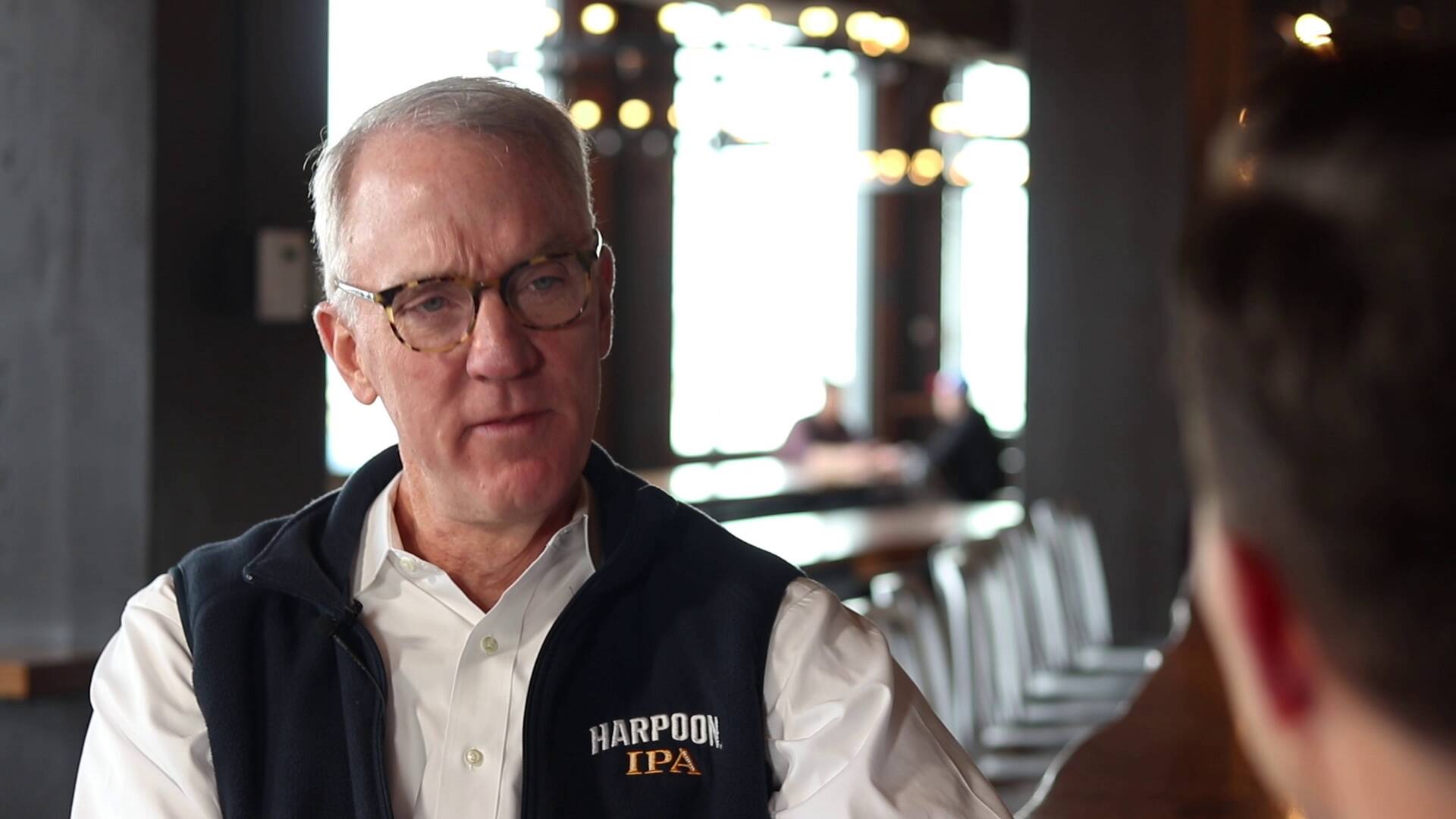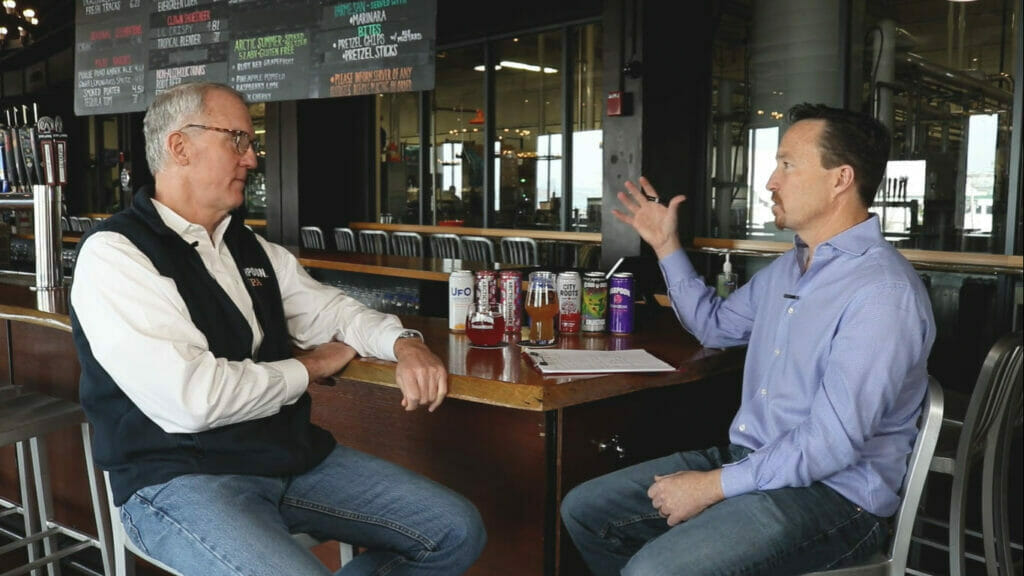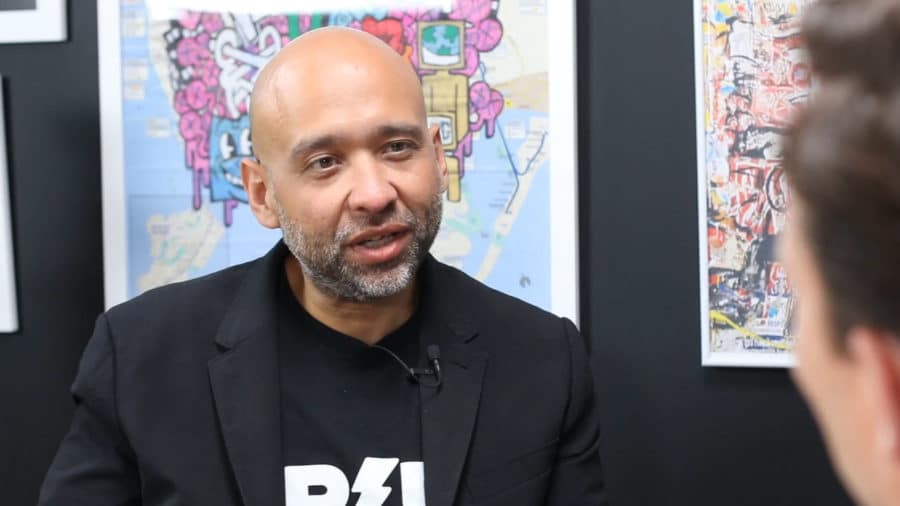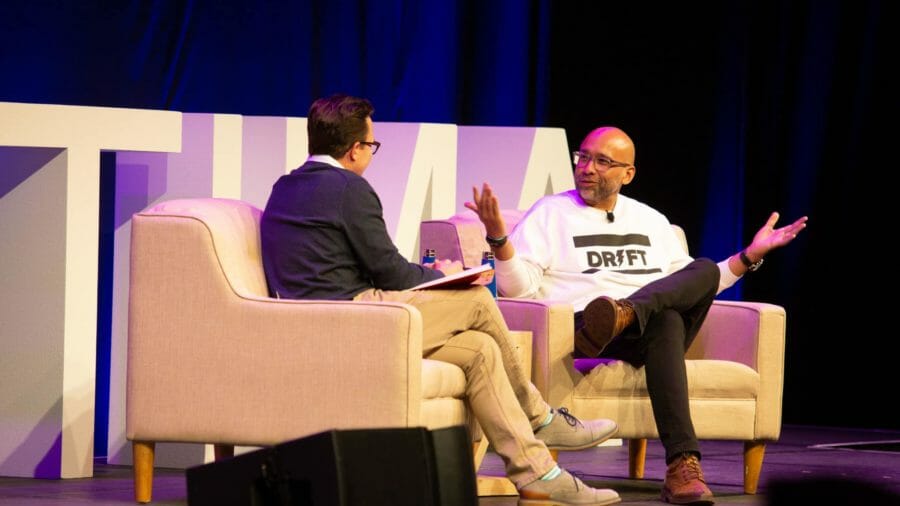Dan Kenary is the CEO and Co-Founder of Mass Bay Brewing Co (MBBC), the parent company of the Harpoon Brewery. Founded in 1986, the Boston-based company has grown to become a category leader in craft beer, and one of the largest breweries in the country.
Dan has been integral to Harpoon’s sustained growth. He led the establishment of a second brewery in Windsor, Vermont; expanded Harpoon’s line of craft beer; and added five more brands to the MBBC portfolio. Plus, in 2014, Harpoon became an employee-owned company. In all, Dan and his team have spent more than 35 years bringing people together.
I had the chance to sit down with Dan and celebrate Harpoon’s history, values, beer, and people. Here’s everything we discussed:
Putting people first
I began the interview by highlighting a common thread that binds PI and Harpoon—people. Talent optimizers know that when leaders show appreciation for their employees and what they bring to the organization, results tend to follow.
For Harpoon, that relationship between people and business is second-nature. It’s reflected in the company’s mission, its values, and even its stellar Glassdoor ratings.
“People are what got us here,” said Dan, “and I’ve been a believer for my whole life that honey is more effective than vinegar.”
He continued, “I’ve been thinking about this a bunch recently, [and that is] how pleasant it is to be around nice people. It doesn’t mean you’re any less competitive, but it’s just way more enjoyable.”
At other companies, that sense of competition can lead to toxicity and disengagement. But Harpoon’s culture is built on a foundation of inclusiveness, compassion, and trust.
“We have an amazing group of people here who generally like each other, and like working hard together, and the power of that’s amazing.”

Harpoon’s history
The path to this point wasn’t exactly a short one. It began in 1986, with Dan and two friends: Rich Doyle and George Ligeti. Following a trip to Europe, the three decided to become brewers and bring some of Europe’s local beers to the U.S.
For Dan, finding success as a beer maker and entrepreneur took time. “The first few years were survival mode. I had two partners and wouldn’t have wanted to do it without them. So from the earliest days, people were key.”
Over the next 10 to 15 years, Harpoon focused on establishing its identity. The company crafted many of its staple lines, including Harpoon Ale, Harpoon Winter Warmer, and Harpoon IPA. It also launched Octoberfest, a fall event held at its New England breweries.
Just as important, Harpoon was developing its culture—and finding lifelong champions of the organization and its values. As Dan explained, “It became about sustainability, and as I’d like to describe it, building out that core.”
Making loyal customers
Harpoon’s sustainability stems not just from great employees, but also great customers.
I recalled an old story of Dan’s. A customer complaint had reached Harpoon’s quality team about the beer they’d received. Before the issue had time to be elevated, Harpoon’s head of quality control took time to hand-deliver a 12-pack to the customer’s doorstep.
It’s this sort of sincerity that has made the company so successful over the years. In the case of Dan’s customer, the outcome couldn’t have been better.
“That person has gone on to be married, had Harpoon at their wedding, and [became] a lifer with us,” he shared. “And that is not an isolated incident.”
A personal stake—literally
Moments like this wouldn’t be possible without the same candor throughout the Harpoon organization. According to Dan, one of his guiding principles is to always be open with his people—on everything from cultural issues to financial ones.
“I talk, really, very openly about that—openly in a very vulnerable way, and passionately about where we are as employee owners together.”
Dan’s sentiment about joint ownership isn’t an exaggeration. In July 2014, Harpoon Brewery became 48% employee-owned through an employee stock ownership plan (ESOP). While the move wasn’t without financial hardships, it’s made Harpoon’s culture and values only stronger.
“[An ESOP] is not for every business, but if you have a great culture with engaged employees and you can turn them into engaged employee owners, there’s tremendous power there.”
ESOP challenges
The move to go employee-owned didn’t come about overnight. When Rich Doyle—then Harpoon’s CEO—chose to exit the business, Dan was adamant about keeping that equity with Harpoon’s people, rather than selling to private equity or a bigger brewery.
“I was not in this to flip this at some point and walk away. You’d created this great thing, and the idea that Anheuser-Busch would buy it and they’d be brewing the beer in St. Louis […] never appealed to me.”
Implementing the ESOP meant taking on debt and creating a long-term plan where employees would accumulate shares over time. The logistics have been tricky, but according to Dan, the company plans to do even more in the future.
“Hopefully we’re going to do a second ESOP transaction at some point in the next few years, where they will buy my stock out. And then the employees could own a hundred percent of the business and manage it off into the future.”
Harpoon has plenty of work ahead. The company competes with more than 8,000 brewers, both big and local, and the restructuring has intensified some of that stress. But Dan said the team’s more cohesive than ever.
“The stress levels are off the charts at times, but I only hear [statements] like, ‘We’re going to go freaking get it. We’re going to go after it, and we’re going to win,’ which is amazing.”

Harpoon’s acquisitions
Even after three decades, Harpoon continues to grow. I asked Dan to shed light on two acquisitions that have shaped the company and its history.
The first, Catamount Brewing Co., is a brewery in Windsor, Vermont. Harpoon purchased the brewery in 2000 to expand its footprint in the world of craft beer. The company continues to operate from the location under the Harpoon banner.
The second, Clown Shoes Beer, is known for its unique IPAs and striking marketing style. Harpoon acquired the company in 2017, welcoming not just its brand and brewery, but also its people. And those new faces have helped Harpoon grow in gratifying ways.
“They’re not only learning an awful lot and becoming part of our culture,” shared Dan, “but we’ve also learned from them.”
For Dan, successful change management starts with trust. By trusting the expertise of incoming talent, respecting their culture, and giving them freedom to do what they do best, those teams can flourish.
“I wasn’t looking to subsume [the team] into Harpoon or UFO and say, ‘We want Clown Shows to become more Harpoon.’ No, no, no,” he said. “We want Clown Shoes to become more Clown Shoes than it’s ever been in the past.”
Hiring great talent
As Harpoon expands its brand, the right talent strategy is more important than ever. In such a fast-moving industry, great teams are essential to Harpoon’s ability to adapt and thrive.
Dan and his people have no plans of slowing down. The ESOP underscores that they have their eyes on the future. “There aren’t a lot of hundred-year breweries in the United States. That’s our goal: to be a hundred-year independent brewery.”
As a group of independent owners, Harpoon puts great importance on hiring diverse talent. Dan even sits in on group interviews when possible. “It almost doesn’t depend on the level, because I care so much about who we hire, and want to be part of that process.”
When I asked what makes an ideal Harpoon employee, Dan circled back to that feeling of compassion. “What we look for is that combination of decent, good people, and then drive, ambition, and competitiveness.”
It’s that special mix of behaviors that gives Harpoon’s teams such cohesion. Dan likened the feeling to playing a sport. “We have a lot of people that were athletes at one level or another in high school or college. So they got the sense of competing as a team, with the goal of winning.”
Talent optimization in action
To me, Dan’s sports analogy is talent optimization in action. When your people feel engaged, in roles that play to their strengths, that’s when your team can reach its full potential—and crush the competition.
Dan said PI’s talent optimization platform has played a key role in Harpoon’s talent strategy. “PI has been a tremendous tool for us. It helps us understand our own motivations or behaviors, and it’s working with our people, too.”
He used his close relationship with his CFO to highlight the ways in which PI can create meaningful dialogue around workplace behavior. “I’m the risk taker, and he is, as you would hope, completely contrary to that.”
“With PI, we both developed a common language. And we were able to develop a way to communicate that was much more effective,” he shared. “It really has been a very, very effective tool for us.”
Harpoon’s past, present, and future
I closed the interview by asking Dan to look back on 35 years in the business. What advice might he share with his younger self when it comes to building great teams?
“I would say relax and have more confidence,” he replied. “Really try to hire for innate character traits and skills, as opposed to looking for, specifically, ‘That person’s a good salesperson.’”
As for the Harpoon of tomorrow, Dan expressed optimism. “That’s one of my most important jobs: making sure I leave this place in a position to go on to greater success than we’ve ever achieved so far.”
For more on our conversation, check out our full video interview.


